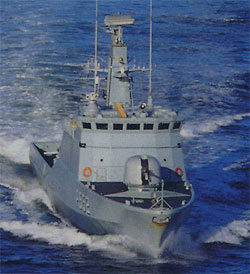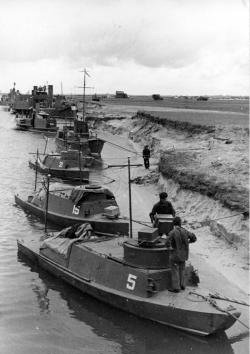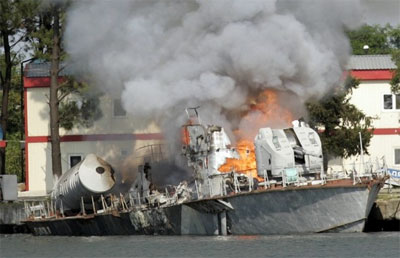26.10.10
Text: RusNavy.com, Evgeny V. Arkhipovsky
"We are waiting for the long-promised invasion. So are the fishes."
| Tell a friend | Print version |
|---|
Home / Russia / The National Security Strategy / Analytics / Naval Cooperation with Ex-Soviet Republics / Part II. Non-geographical policy or non-political geography
Part II. Non-geographical policy or non-political geography
Winston Churchill
Prior to discussion about deliveries of Russian naval arms to near abroad, it seems reasonable to answer a simple question – for which of former USSR republics this topic is relevant on the whole? This relevancy can be imposed both by purely political and entirely geographical aspects.
Speaking of geography, such countries as Tajikistan, Uzbekistan and Kirghizia can be surely freed from any kind of naval arms deliveries. The reason is obvious – as a writer said, one could gallop even three days without any evidence of sea. The only navy-related reference in this region is torpedo test range at the Lake Issyk Kul. But probably, now there is not a mite left of that range, except for recollections of Soviet naval officers who were unlucky to serve there when the USSR was breaking up.

Danish-built patrol craft of Lithuanian Navy.
Baltic countries are NATO members. There's nothing to add, as a matter of fact. Deliveries of Russian naval arms there is impossible in principle, since such weapons do not conform to NATO military standards. By the way, this brings up one little question – what happened to those Soviet-built missile boats, minesweepers, and auxiliary vessels remained in the Baltic countries? Theoretically, it is cheaper and easier to "shred" them instead of retrofitting to NATO standards. The answer is quite interesting, although goes beyond the scope of discussion. Once we stay within this scope, we should state that naval cooperation with Baltic countries can by carried out exceptionally within the framework of friendly visits, joint exercises and maneuvers. Unless there would be a political will to consider the Baltic Sea as potential theater of naval operations where any terrorist attacks against the Baltic countries and Russia are theoretically probable. However, that is next to impossible as well as showing of the political will pressing to naval cooperation in this region. Read: entire policy without any geography.

Boats of Pinsk River Flotilla, 1941.
Almost the same things can be referred to Moldavia, although with one substantial remark which is internationally unrecognized Transdniestrian Republic. It is an obscured conflict there and it could lead to more than definite outcomes.
This certainty is based on some political preferences. It is well known that Moldavian is not very friendly to Russia. It is also a common knowledge that Transdniestrian Republic not only gravitates to Russia but even depends on it. God forbid, but if the latent conflict escalates up to armed confrontation, this will definitely bring up a question – what weapons would Transdniestrian Republic use in the Dniester River. Separatists have no one but Russia to answer this question…
But this situation is totally notional, since probability of such developments is negligibly small. However, it is ether inappropriate to exclude possibility of armed encounter in Dniester between river-going boats built, say, in Russia and Romania. As the saying is, policy goes hand in hand to geography in terms of potential appearance of new hot spot on the map.
Georgia. One can do without comments here; however, we'll make one abstract remark. The face-off between missile cruiser Moskva and Georgian boats in 2008 showed the obsolescence of Russia's Black Sea Fleet combat structure and mismatch to its main objectives. Missile cruiser versus boats…is not even cannon against sparrows.

Georgian missile boat burning at the quay.
Overall conclusion is that military technical cooperation, naval cooperation, and naval arms exports to the abovementioned countries are either impossible or next to impossible. And this "next to" is so inappreciable that it would be more proper to say that Russia's cooperation with Baltic countries, Belarus, Moldavia, or Transdniestrian Republic can be kicked off only after substantial geopolitical changes. Just like a full-scale war, although none of clear-headed human beings cannot even conceive it.
Read more
Contents
Part I. Who and What
Part II. Non-geographical policy or non-political geography
Part III. Friends or competitors?
Part IV. Delicate hints
Part V. Naval cooperation: geography, economy, or… policy?



